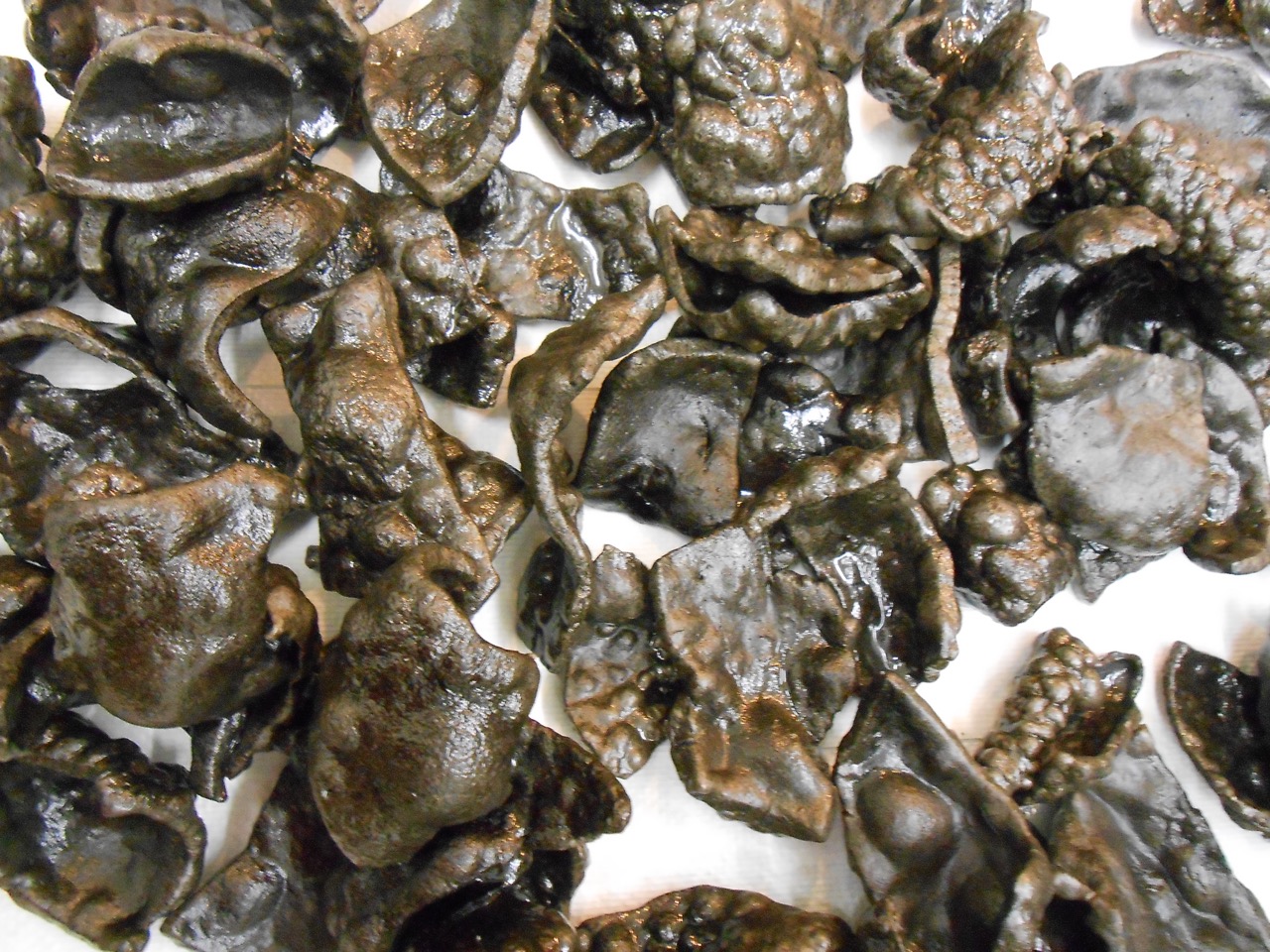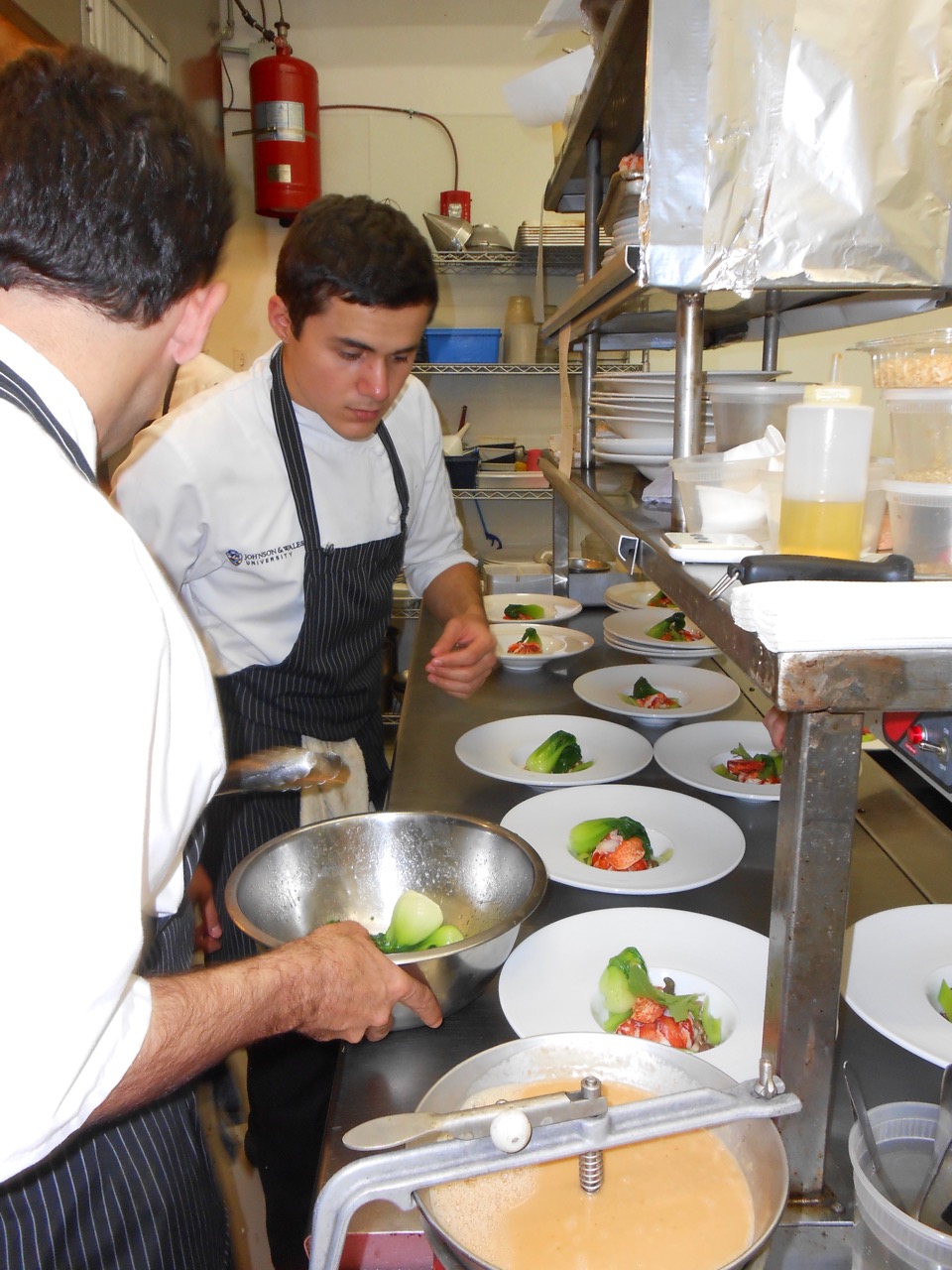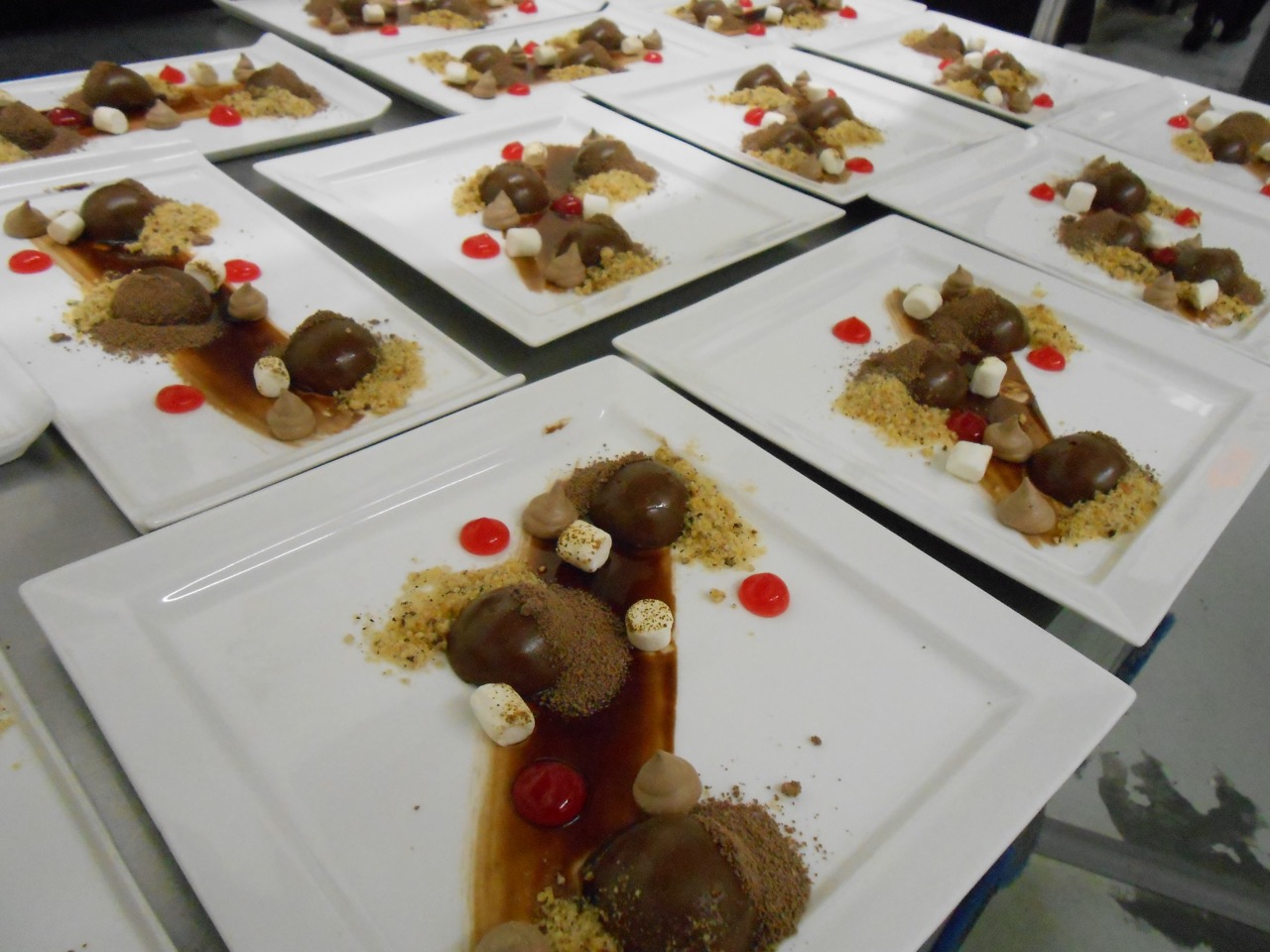Chef Rizwan Ahmed is a decorated chef who can be found most days imparting wisdom in his teaching kitchen at Johnston & Wales University or serving up creative local fare from his food truck, Rhode Rage.
Eating with the Ecosystem has known Chef Riz since his days as chef-proprietor of the Hourglass Brasserie in Bristol, RI. We still remember with awe the time he served skate cartilage chips (died with squid ink) at an Eating with the Ecosystem dinner at the Hourglass. Most recently, we have been honored to collaborate with Riz (and several of his JWU students) on the creation of a new cookbook, Simmering the Sea: Diversifying Cookery to Sustain Our Fisheries.
Riz brought to this project not only his keen sense of flavor and texture as a chef, but a multifaceted appreciation for marine life that he gained through an earlier career path as a marine biologist. You can enjoy these recipes for yourself by ordering Simmering the Sea HERE.
We hope you enjoy these snippets of an interview that we did with Chef Riz several years ago while preparing for a dinner in his former restaurant:
What made you want to become a Marine Biologist initially?
Being brought up in a third world country for the first eighteen years of my life, one comes to realize that the environment is put on the back burner. My early interest in the environment was when my family built their house close to a beautiful beach outside the main city of Karachi, Pakistan. We had a view of the mudflats right outside our doorstep. These mudflats had a large diversity of marine species as well as birds. But that didn’t last for long. Within a few years, without any laws or protection, the mudflats deteriorated leaving a wasteland that was replaced with commercial buildings and homes. This was only one example of what was happening around to the suburbs of Karachi and I knew something needed to be done.
I had made up my mind and when I finished school I applied to colleges in the States that had some sort of environmental degree with a concentration in Marine Ecosystems. I was accepted to the University of Maine, Machias. While attending college I would visit the coastal waters of Karachi in the summer and take back samples of species to identify and record. This helped establish a chart of what the Arabian Seas coastline had to offer.
When I finished college I moved down to Florida to work in the Marine Fisheries industry including Mote Marine Laboratories in Sarasota, Florida. Finally laws were put into place to prevent cities and industries from polluting the Arabian Sea. And now the beaches across the coastline of Pakistan are seeing a slow comeback in marine life and biodiversity. This gave me hope that if a third world country can come to the realization and save their marine ecosystem then we as a world can do far greater things.
What made you decide to switch paths and become a chef?
I’ve been passionate about food as long as I can remember. Coming from a very close knit family my favorite and most fond memories were gathering around the dinner table for a meal cooked by my Mother. Each dish was a celebration of flavor and this is probably what fueled my passion for becoming a chef.
I decided to pursue a degree in Culinary Arts in 2002 and would then decide between the two degrees. I moved to London, England to attend the Le Cordon Bleu Culinary Institute. Upon graduating with honors, I wanted to work with the best in the industry and sort after some of the most respected names in the field. I managed to get some extensive experience as a chef in many fine-dining establishments. I apprenticed at the prestigious Lanesborough Hotel in London, under Executive Chef Paul Gayler. I also worked at several famous Michelin starred restaurants including the Orrery, under Andre Garret and Le Gavroche, under Michel Roux in London. I then moved to Bermuda to work with the Fairmont Hotels & Resorts at the Newport Room, one of only hundred and fifty AAA five diamond restaurants in North America.
I met my beautiful wife in Bermuda while she was working there as a nurse. We fell in love and came to Rhode Island to see the in-laws. When I saw Bristol, Rhode Island, where my wife had lived for many years, I knew this would be the place for us to start our lives together.
What special insight do you bring as a chef that came from your knowledge of Marine Biology? How do you bring your Marine Science experience to bear in your work as a chef?
After being disappointed with the quality of food produced by some of the restaurants I had been to and the lack of understanding ones product and where it came from and to appreciate and respect the abundance and variety that our oceans have to offer I decided to open up my own restaurant.
There is an abundant diversity of marine life that can be used and prepared for by chefs to put on their menu. But nine out of ten restaurants have species like cod. This puts a heavy load on the cod population. People have now become so accustomed to a limited choice of seafood that they are not willing or are not aware of other species that taste just as good if not better. To me it is the duty of the chef not just to provide an excellent meal but to educate the guest on what they are eating when it comes to seafood, to have an understanding of “eating with the ecosystem” and to work with it. Not to put a heavy load on a few selected species but to utilize a wide range as to not negatively affect the ecosystem as a whole.
But my biggest respect goes to the French chef, who tries to utilize as much as possible from a product with the least amount of waste. This to me shows that with a little insight one can do wonders and provide a guest with a memorable and educated dining experience.









